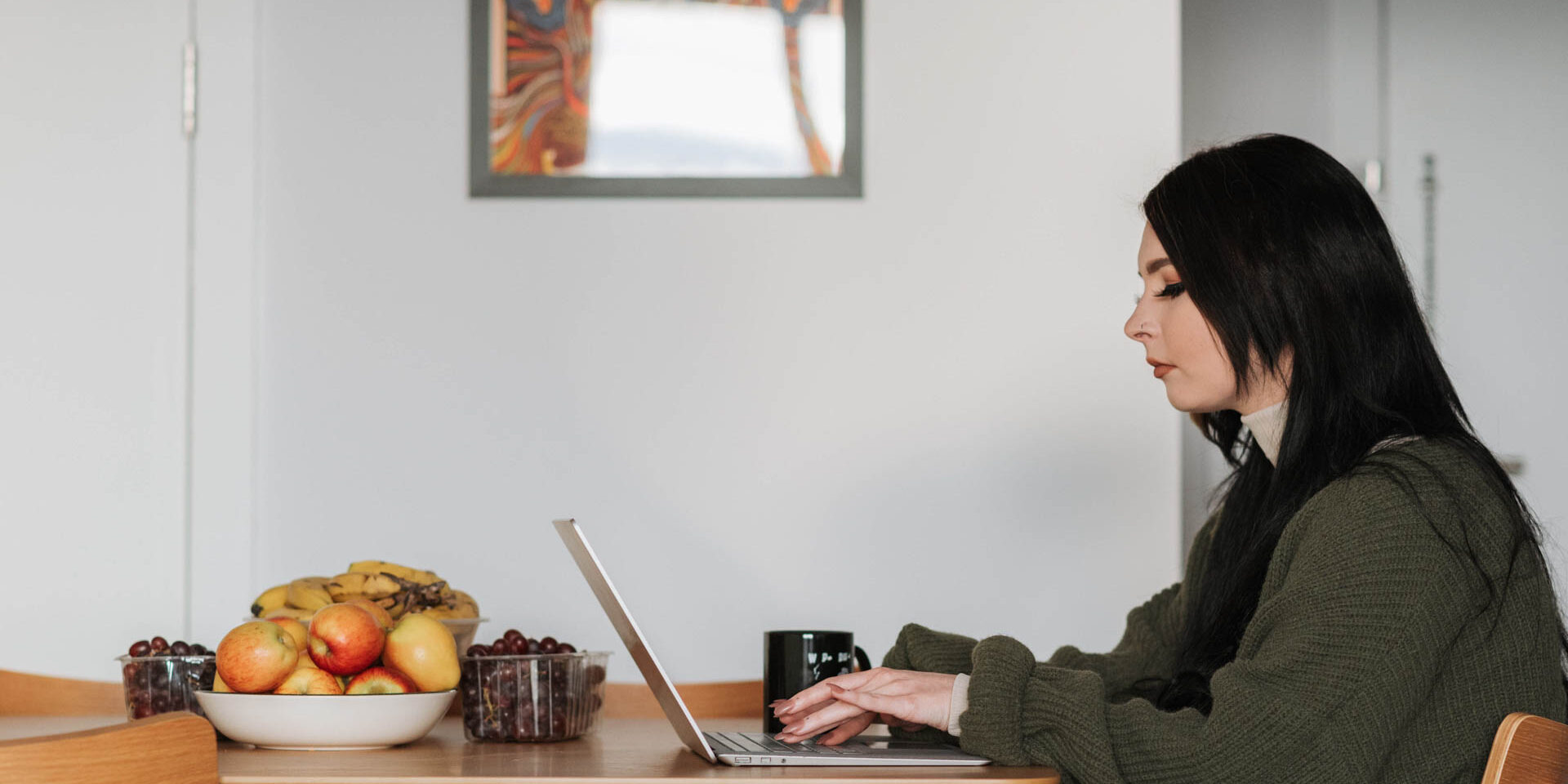Panel interview is a type of job interview that involves multiple interviewers and one candidate. Usually, the interviewers are representatives from different departments in the company such as a supervisor, HR representative, team leader, or senior manager.
Definition of a Panel Interview
In a panel interview, the interviewers take turns asking the candidate questions about their qualifications, experience, and suitability for the job. Compared to a one-on-one interview, a panel interview can be more in-depth and diverse, as interviewers can assess candidates from different perspectives and expertise.
Why Companies Use Panel Interviews
Companies use panel interviews for various reasons, including assessing a candidate’s ability to handle multiple perspectives and decision-makers, reducing bias from a single interviewer, and evaluating a candidate’s compatibility with the company culture. Additionally, different interviewers can evaluate different skills and competencies, such as technical skills, leadership abilities, communication skills, and cultural fit.
Moreover, panel interviews can enable companies to save time and effort in the hiring process since several interviewers can participate in one interview session. Companies can also assess if the candidate is qualified for different positions within the company, which can be useful in the future.
Panel interviews are commonly used by many companies in the hiring process. It is essential for candidates to prepare well, research the company, and be confident in their abilities during the interview.
Advantages and Disadvantages of Panel Interviews
Panel interviews have become increasingly common in the recruitment process, particularly for positions that require a high level of skills, experience, and competency. They consist of multiple interviewers, usually three to five, who ask questions to determine the applicant’s suitability for the role. This section will outline the advantages and disadvantages of panel interviews.
Advantages of a Panel Interview
Diverse perspectives: With multiple interviewers, applicants get the benefit of diverse perspectives that offer a more comprehensive view of the candidate’s suitability. Different interviewers may focus on different aspects of the applicant’s qualifications and experience, providing a more holistic assessment of their capabilities.
Time-saving: Since multiple interviews can be conducted simultaneously, panel interviews are more efficient than scheduling individual interviews. This saves time for both the applicants and the interviewers, allowing a quicker hiring process.
Chance for networking: If the panel is composed of colleagues or supervisors from different departments or seniority levels, it becomes an advantage for the applicant as they have the chance to establish connections and network within the organization.
Disadvantages of a Panel Interview
Overwhelming: Applicants may feel overwhelmed with the number of interviewers and their questions, causing nervousness and anxiety. This could impact the candidate’s performance during the interview.
Difficult to establish rapport: With several interviewers, finding a connection or establishing a rapport with each interviewer may prove difficult for the applicant. This could also impact the candidate’s overall performance.
Biased opinions: Opinions of certain interviewers may overshadow others, leading to an incomplete assessment of the applicant. It is possible that one interviewer may have a negative bias that impacts the entire panel.
Panel interviews offer various advantages and disadvantages that should be carefully considered before implementing them as part of the recruitment process. While they may save time and offer diverse perspectives, they may also cause anxiety for the applicant and potentially result in biased opinions. Employers should weigh these factors carefully and decide which approach suits their organization’s needs.
Types of Panel Interviews
When it comes to panel interviews, there are several types that companies can use to assess job candidates. Understanding the different types of panel interviews can help you prepare more effectively.
Structured Panel Interviews
Structured panel interviews follow a predetermined list of questions that each candidate is asked. The same questions are asked of all candidates, and their answers are then rated on a standardized scale. This makes it easier to compare candidates across a range of factors and reduces the risk of interviewer bias.
Structured interviews are typically used for roles where specific skills or knowledge are required, such as technical or scientific positions. They are also valuable when recruiting for high-level or executive roles, where the stakes are high, and making the wrong decision can be costly.
If you’re preparing for a structured panel interview, make sure you research the job requirements thoroughly and familiarize yourself with the company’s mission, values, and culture. Pay attention to any keywords or phrases that seem important and be prepared to give specific examples of how you’ve demonstrated those skills in the past.
Unstructured Panel Interviews
Unstructured panel interviews are more conversational in nature, with interviewers asking open-ended questions that allow candidates to control the direction of the conversation. This style of interview assesses a candidate’s ability to think on their feet, communicate effectively, and build rapport with interviewers.
Unstructured interviews are often used for roles where teamwork, creativity, and adaptability are important, such as marketing or sales positions. They can be challenging, as candidates must be able to navigate the conversation without knowing exactly what they will be asked. However, they can also be an opportunity to showcase your personality, creativity, and problem-solving skills.
If you’re preparing for an unstructured panel interview, review the job description carefully and try to anticipate the types of questions you may be asked. Think about how you can provide specific examples of your experience and skills that demonstrate your fit for the role. Be prepared to listen actively and ask thoughtful questions of your own.
Semi-Structured Panel Interviews
Semi-structured panel interviews are a blend of the two styles, with some predetermined questions and some room for open discussion. The interviewers may have a list of key areas to cover, but the conversation is allowed to flow naturally, with follow-up questions and tangents as needed.
Semi-structured interviews are often used for roles where both technical expertise and interpersonal skills are important, such as project management or consulting. They provide a balance between structure and flexibility, allowing candidates to showcase their experience and problem-solving ability while also demonstrating their communication and relationship-building skills.
If you’re preparing for a semi-structured panel interview, be prepared to delve deeply into your experience and achievements. Think about how you can demonstrate your value proposition to the interviewer’s queries.
Understanding the different types of panel interviews can help you prepare more effectively.
Panel Interview Etiquette
A panel interview is a rigorous process in which multiple interviewers will evaluate your suitability for the job. The interviewers may include members of the HR team, supervisors, peers, and even external stakeholders. In order to succeed in a panel interview, it is crucial to remember that you are not just being evaluated on your skills and qualifications – you are also being judged on your professionalism and etiquette.
Dress Code
The first thing to keep in mind is the dress code. You must dress appropriately for the job you are interviewing for, and your attire should reflect your professionalism. It is better to err on the side of caution and dress more conservatively than to wear something too revealing or too casual. Avoid bold prints and stick to neutral colors. If you are unsure of what to wear, do some research on the company’s dress code or ask your recruiter for guidance.
Punctuality
The second aspect of panel interview etiquette is punctuality. You must arrive at the interview location on time or even a little early – this will demonstrate your respect for the interviewers’ time and your ability to manage your own schedule. If you are running late or have an emergency, be sure to notify the interviewer as soon as possible.
Body Language
The third aspect of panel interview etiquette is body language. Your body language can reveal much about your confidence, enthusiasm, and interest in the job. Sit up straight, maintain eye contact, and avoid fidgeting or slouching. Show interest in the interviewers and engage with them, nodding and smiling when appropriate. Use hand gestures sparingly and keep them within your personal space. Be aware of your posture and avoid crossing your arms, as this can come across as defensive.
Interpersonal Skills
The final aspect of panel interview etiquette is interpersonal skills. You must demonstrate your ability to communicate effectively and work well with others. Be polite, courteous, and respectful to everyone you meet, from the receptionist to the interviewers themselves. Listen attentively to the questions you are asked and answer thoughtfully and clearly. If you are unsure of a question, don’t be afraid to ask for clarification. Speak in a confident, but not arrogant, tone.
Panel interviews can be intimidating, but it is possible to succeed by following a few basic rules of etiquette. Dress appropriately, arrive on time, use positive body language, and demonstrate your interpersonal skills. If you prepare well, remain calm, and stay focused, you will present yourself as a capable and professional candidate who is ready for the job.
Panel Interview Questions
After understanding what a panel interview is and how to prepare for one, it’s essential to know the types of questions that may arise during the interview. This section covers some common, behavioral, technical, tricky, and illegal questions that may arise.
Common Questions
Common questions are straightforward and often asked to set the tone of the conversation or ease the interviewee in.
- “Can you tell us a little bit about yourself?”
- “What made you apply for this job?”
- “What are your strengths and weaknesses?”
- “Where do you see yourself in five years?”
Answering these questions can be quite comfortable as they do not require a specific response. When answering these questions, it is essential to keep it polite and professional.
Behavioral Questions
Behavioral questions are asked to assess an interviewee’s past behavior in specific situations. These questions usually begin with “Tell me about a time when…”
- “Tell me about a time when you had a conflict with a coworker and how you resolved it.”
- “Can you give an example of how you handled a difficult task?”
- “Tell me about a time when you had to make a tough decision.”
The best way to answer these questions is by following the STAR method (Situation, Task, Action, Result). Interviewees describe the situation, the task at hand, the actions taken, and the resulting outcome.
Technical Questions
Technical questions are specific to the job being applied for and test the interviewee’s skills, knowledge, and understanding.
- “What programming languages are you proficient in?”
- “Can you explain the process of optimizing a website for a search engine?”
- “How would you troubleshoot a server error code?”
Interviewees should prepare for technical questions tailored to the job position they are interviewing for. They should remain confident when answering, and if they do not know the answer, they should say so.
Tricky Questions
Tricky questions are asked to challenge the interviewee or test their critical thinking skills. These questions are often open-ended or hypothetical.
- “If you could be any fictional character, who would you be?”
- “What is your biggest failure, and how did you handle it?”
- “How do you handle working with someone you do not get along with?”
Interviewees should remain professional and answer the question to the best of their ability. There is often no right or wrong answer to tricky questions.
Illegal Questions
Illegal questions are those that breach labor laws and make inappropriate assumptions based on personal characteristics, such as age, gender, or ethnicity.
- “Do you plan on starting a family soon?”
- “What is your religion?”
- “How old are you?”
Interviewees should not answer these questions and can redirect the conversation back to their work experience and skills.
Understanding the different types of questions that may arise during a panel interview can help an interviewee prepare and feel more confident when facing the panel.
Panel Interview Tips
Panel interviews are a great opportunity to showcase your skills and experience to a group of hiring managers at once. With multiple interviewers present, they can ask different questions that cover various aspects of the job.
To help you succeed during a panel interview, here are some tips for before, during, and after the interview.
Before the Interview
Research the Company and Panel Members: Learn more about the company culture, mission, values, and recent news. Also, research the panel members’ professional backgrounds, roles, and achievements. This will give you an idea of what they’re looking for in a candidate and how you can tailor your answers accordingly.
Review the Job Description: Read the job description thoroughly and understand the key responsibilities, skills, and qualifications required for the position. This will help you prepare relevant examples and questions to ask during the interview.
Practice Your Responses: Review common interview questions and prepare your answers in advance. Also, practice answering questions that relate to the job responsibilities and qualifications. Consider recording your responses to get feedback on your tone, clarity, and body language.
Dress Professionally: Make sure you dress appropriately for the job and company culture. Research the dress code in advance. If in doubt, always err on the side of dressing more formal.
Bring Necessary Materials: It’s important to have a copy of your resume, portfolio, references, and any other relevant documents. Bring them in a professional portfolio or briefcase.
During the Interview
Introduce Yourself: Begin the interview by introducing yourself and shaking hands with each panel member. Use eye contact, a firm handshake, and a confident tone to make a positive first impression.
Listen Carefully: Pay attention to each panel member’s questions and comments. Take brief notes if necessary. Show that you’re engaged and interested in what they have to say.
Address Each Panel Member: Answer each question directed towards you by addressing each panel member. This will show that you’re inclusive and respectful of each interviewer’s role in the interview process.
Use Examples to Demonstrate Your Skills: Whenever possible, use real-life examples to demonstrate your skills and experience. This helps the panel members visualize your potential as an employee.
Ask Relevant Questions: Use the opportunity to ask relevant questions about the company, culture, and job responsibilities. This shows that you’re interested in the position and can help you better understand what the job entails.
After the Interview
Follow-Up with a Thank-You Note: Within 24 hours of the interview, follow up with a thank-you note or email to each panel member. Express your appreciation for their time and the opportunity. This shows that you’re professional and courteous.
Review Your Performance: Spend some time reviewing your performance during the interview. Think about what you did well and what you could have done better.
How to Prepare for a Panel Interview
Preparing for a panel interview requires a lot of effort and dedication to ensure that you perform to the best of your ability. In a panel interview, you will typically face a group of interviewers who will be asking you a series of questions.
Here are some essential tips to help you prepare for a panel interview:
Know the Company
The first step to prepare for a panel interview is to understand the company where you are applying. You need to research the history, mission, values, products and services, and recent news to have an understanding of the company’s overall culture and goals. Knowing the company will enable you to tailor your answers to their values and mission.
Research the Panelists
The panel interview will usually consist of two or more interviewers who will be asking you a range of questions. Therefore, it is crucial to know a little bit about each of the panelists. Find out about their job titles, their roles in the company, and their professional backgrounds. It will help you understand the perspective of each interviewer and answer questions accordingly.
Practice Common Questions
Panel interviews typically include common interview questions that you can anticipate. Common questions include, “tell us about yourself,” “why are you interested in this role,” and “what is your greatest strength.” You can find these questions online, practice them with a friend or mentor, and come up with thoughtful and concise answers.
Anticipate Tricky Questions
While common questions are essential to prepare for, you should also anticipate tricky questions posed by the interviewers. For example, you might be asked to provide an example of a time when you failed or made a mistake. To prepare for these types of questions, think about experiences where you have learned and grown from a difficult situation.
Develop Your Strategy
Lastly, develop a strategy for the interview. To formulate your strategy, you need to consider your strengths and weaknesses, your past experiences, and your goals. Based on this information, you can tailor your answers and responses to the questions asked. You can also prepare questions to ask the interviewers about the company or role to show your interest in the position.
Preparing for a panel interview takes effort and dedication. By knowing the company, researching the panelists, practicing common and tricky questions, developing your strategy, you will be able to answer the questions confidently and put your best foot forward.
Example Panel Interview Questions with Answers
A panel interview is a process where a group of people (usually three or more) from an organization interview a candidate for an open position. The panel members usually have different areas of expertise, so they can assess the candidate’s suitability for the role from different angles. Panel interviews can be intimidating, but preparation is key to making a good first impression. Here are some common panel interview questions and suggested answers to help you prepare for your next panel interview:
1. Tell us about yourself.
This is often the first question in a panel interview. It might seem like a request for a casual chat, but it’s actually an opportunity to make a good first impression. Keep your answer professional and concise, highlighting your relevant skills and experiences.
Example answer: “I have been working in the industry for five years, specializing in [specific field], and have a proven track record of [specific achievement]. I am passionate about [related interest] and have recently completed [relevant certification or training].”
2. What do you know about our organization?
This question tests your research skills and your interest in the company. Show that you have done your homework and have a good understanding of the company’s mission, values, and products or services.
Example answer: “I have researched your company online and found that you are a leader in [specific field]. I was particularly impressed by your [specific project or accomplishment]. I think that your commitment to [core value] aligns with my own principles, and I am excited about the opportunity to contribute to your team.”
3. How do you handle conflict or difficult situations?
This question assesses your interpersonal skills and your ability to handle stress. Provide an example of a challenging situation you faced and how you resolved it. Emphasize your ability to stay calm and professional in difficult circumstances.
Example answer: “In my previous role, I had to deal with a difficult customer who was upset about [specific issue]. I listened actively to their concerns, validated their feelings, and offered a solution that addressed their needs while also meeting the company’s requirements. I believe that active listening, empathy, and problem-solving skills are key in resolving conflicts.”
4. Why do you want this job?
This question assesses your motivation and your fit with the company culture. Highlight the aspects of the job that align with your career goals and values, and show that you understand the company’s expectations and challenges.
Example answer: “This job aligns with my passion for [specific field] and my desire to make a positive impact on [specific aspect]. I am impressed by your company’s reputation for [specific trait] and your commitment to [specific goal]. I believe that my skills and experience make me a strong fit for this position, and I am excited about the opportunity to contribute to your team.”
Sample Panel Interview Scenarios
Panel interviews can be intimidating, especially if you’re not sure what to expect. In this section, we’ll go over some common scenarios that you might encounter during a panel interview and provide tips on how to handle them.
Scenario 1: The “good cop, bad cop” panel
In this scenario, one interviewer will play the role of the “good cop,” while the other will take on the “bad cop” persona. The “good cop” will ask easy, friendly questions and try to make you feel comfortable, while the “bad cop” will ask tough, challenging questions.
Tip: Don’t be thrown off by the “bad cop’s” questions. Remember to stay calm, confident, and professional in your responses.
Scenario 2: The “teamwork” panel
In this scenario, the panel will ask questions that assess your ability to work in a team. They may ask you to give examples of times when you’ve worked well with others, or ask you how you handle conflict in a group setting.
Tip: When answering questions in this scenario, be sure to highlight your ability to communicate effectively, compromise, and work towards a common goal.
Scenario 3: The “technical expertise” panel
If you’re applying for a technical position, you may encounter a panel that’s focused on your technical expertise. They may ask you to complete coding challenges, troubleshoot technical problems, or explain technical concepts.
Tip: Be prepared to show off your technical skills in this scenario. Brush up on your coding skills beforehand and be ready to explain complex technical concepts in simple terms.
Scenario 4: The “cultural fit” panel
In this scenario, the panel will ask questions that assess whether you’re a good fit for the company culture. They may ask about your values, how you work in a team, or how you handle stress.
Tip: When answering questions in this scenario, be authentic and honest. It’s important to remember that the company is looking for someone who not only has the skills to do the job, but also fits in well with the company culture.
Scenario 5: The “creativity” panel
In this scenario, the panel will ask questions that assess your creativity and problem-solving skills. They may ask you to come up with creative solutions to hypothetical problems or ask you to describe times when you had to think outside the box to solve a problem.
Tip: When answering questions in this scenario, be creative and think outside the box. Show the panel that you’re capable of approaching problems in unique and innovative ways.



